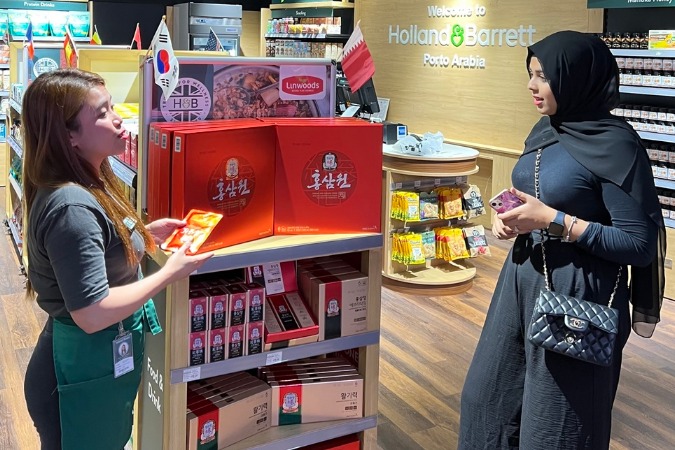South Korea’s health supplements sector is experiencing a remarkable boost, driven primarily by the purchasing power of young Chinese consumers. Exports of health functional foods, including red ginseng tonics and vitamins, reached approximately $43.9 million in just the first 20 days of September 2024, marking a substantial increase of 40.2% compared to the same period last year, according to data from the Korean alternative data platform KED Aicel.
The growth in health supplement exports is particularly pronounced in China, which has become the largest market for these products. Shipments to China totaled around $57.1 million in the third quarter of 2024, representing an impressive 65% rise from the previous year. This surge accounts for nearly one-third of South Korea’s overall health supplement exports, which reached $176.3 million during the same timeframe.
Rising Demand and Cultural Influence
Korean health supplements have nearly doubled in exports over the past five years, climbing from $345 million in 2019 to $683 million in 2023. The increasing appetite for these products is attributed to the influence of K-pop culture, with young consumers eager to emulate the lifestyles of their favorite idols. Brands like KT&G Corp.’s Korea Ginseng Corp. (KGC) have seen significant success, particularly with their flagship product, the Hong Sam Won red ginseng drink. Exports of this product to China rose by an astonishing 158% in 2024 compared to the previous year.
The proliferation of e-commerce platforms such as Alibaba’s Taobao and Tmall has facilitated access to these products for consumers in China. According to a Chinese consulting firm, beauty-related nutritional supplements sold through these platforms reached 13.1 billion yuan ($2.6 billion) in 2023, a 22% increase from 2022. Overall, China’s health supplement market was valued at 347.5 billion yuan last year, indicating robust growth potential.
Strategic Positioning and Future Outlook
Korean brands are well-positioned to harness this market growth, bolstered by perceptions of safety and quality among Chinese consumers. A survey conducted by KOTRA among 401 Chinese consumers revealed that 83% of those in their 20s regarded Korean supplements as “highly safe,” compared with 67% of respondents in their 30s. Additionally, one in five consumers cited Korean popular culture as a motivating factor for their purchases.
In 2024, Korea ranked as the fourth-largest source of health supplement imports in China, with shipments totaling $267 million, a 19% increase from 2023. Overall, China imported health function foods worth $61 billion, reflecting a growth of 15.8% year-on-year.
Analysts underscore the importance of adapting product development and marketing strategies to align with changing consumer preferences. As noted by Park Sun-young, a research fellow at the Korea Investor Relations Service, “Generational change and the shift to e-commerce are reshaping China’s health supplement market.” This evolving landscape presents both challenges and opportunities for Korean companies as they navigate the demands of a dynamic consumer base.
